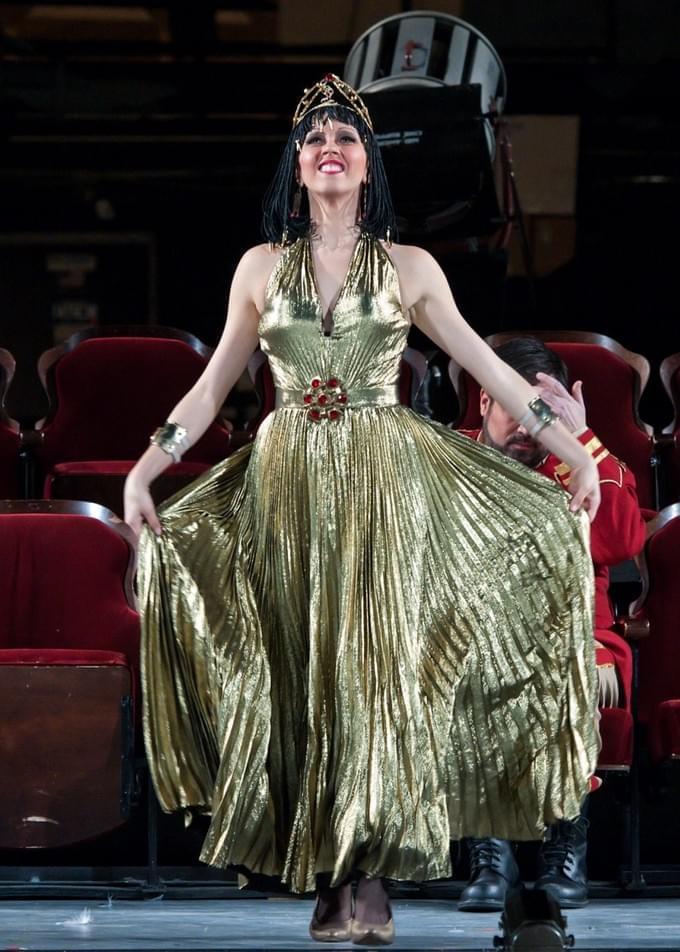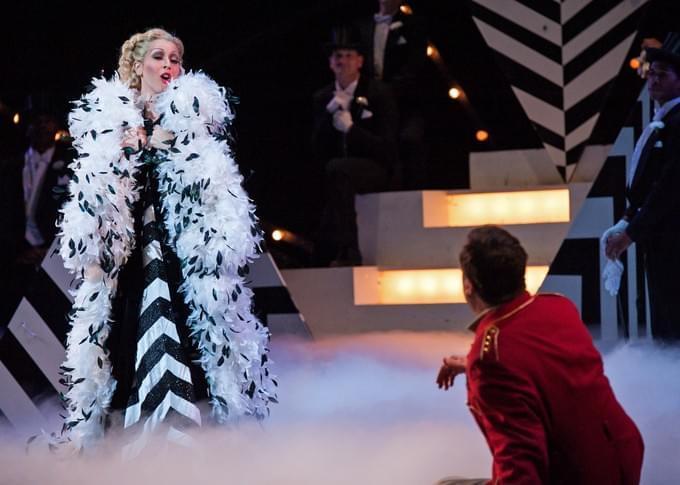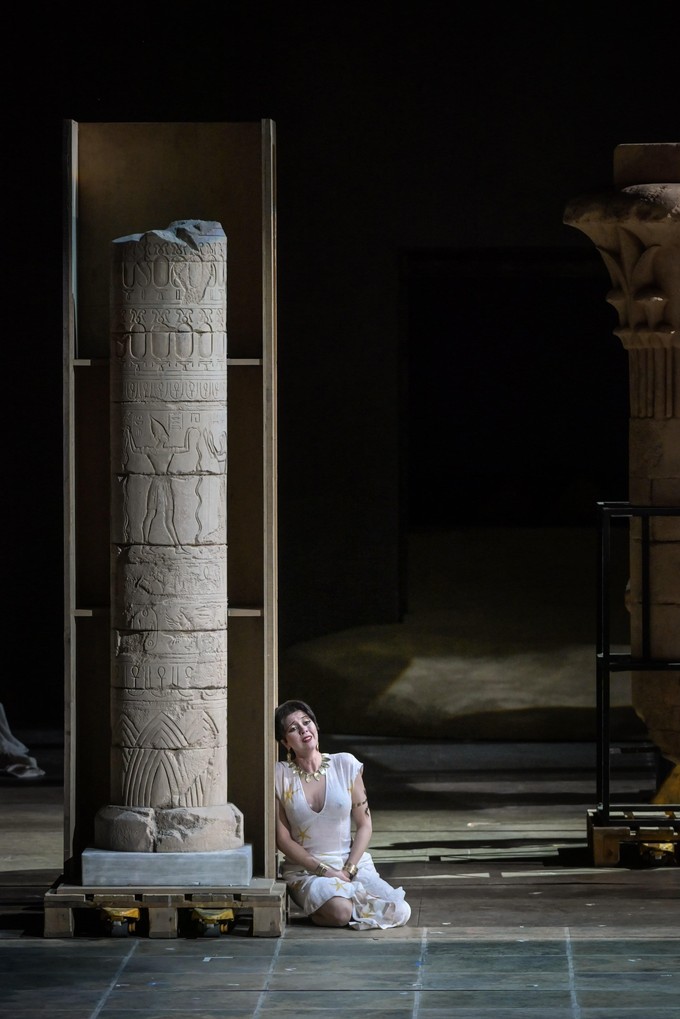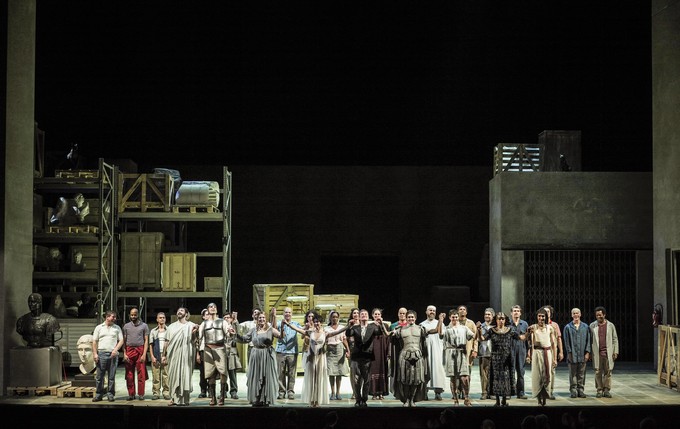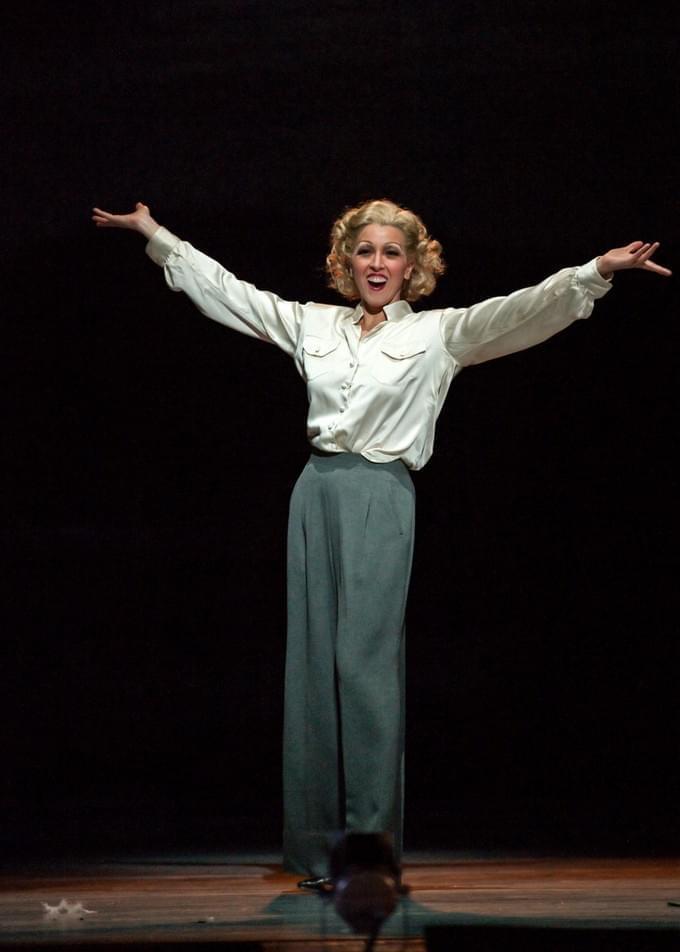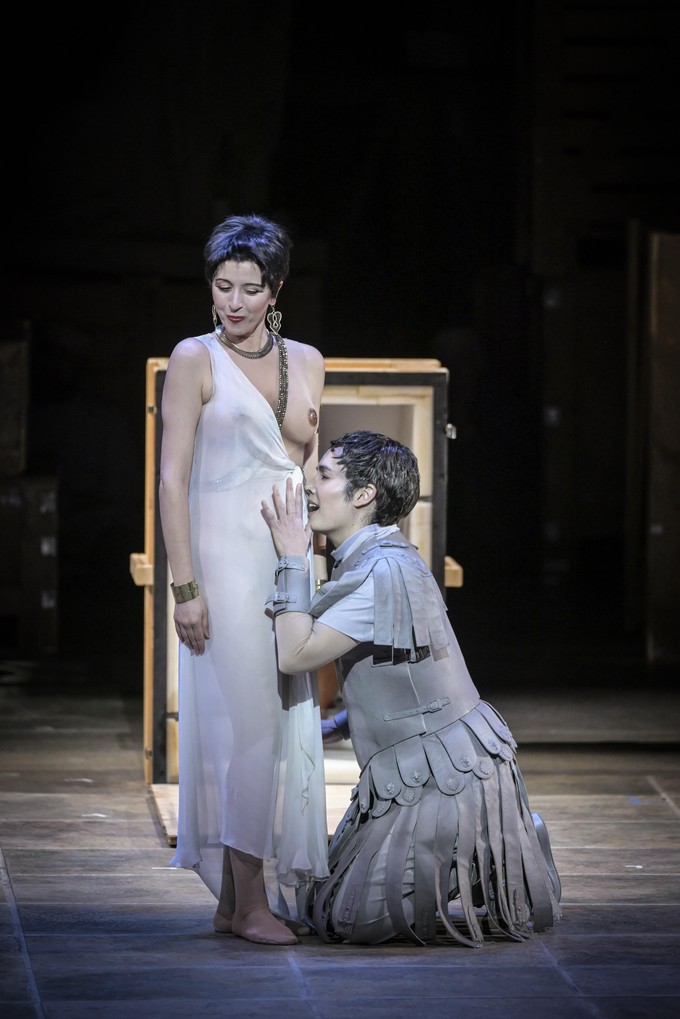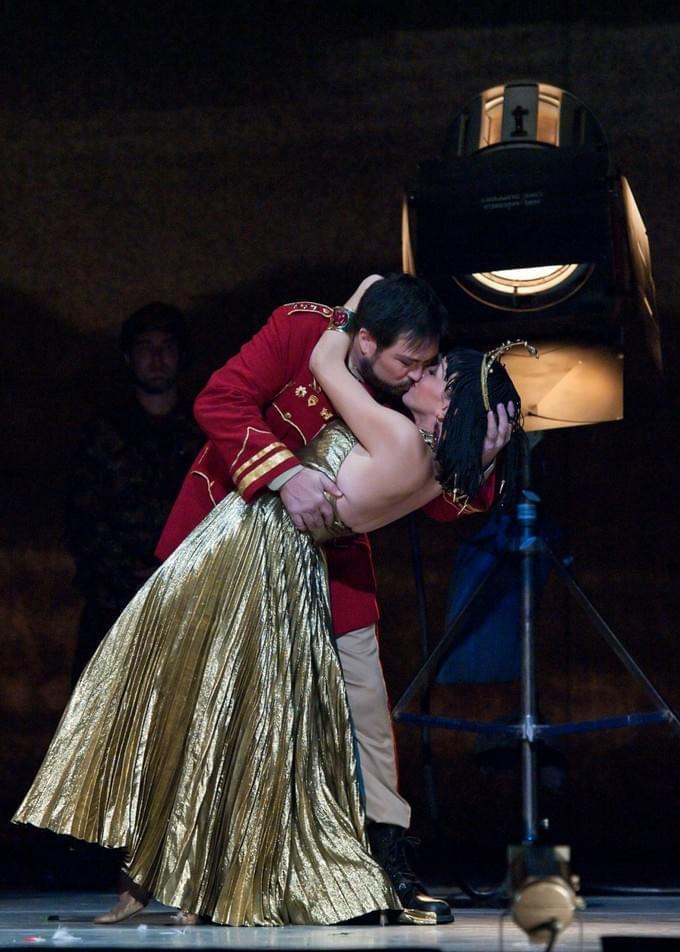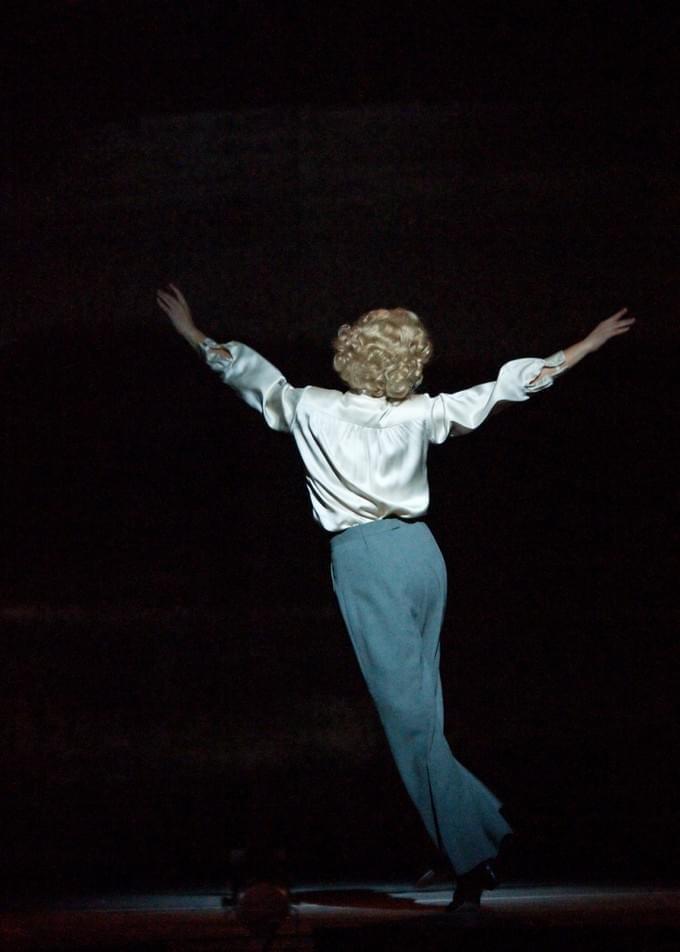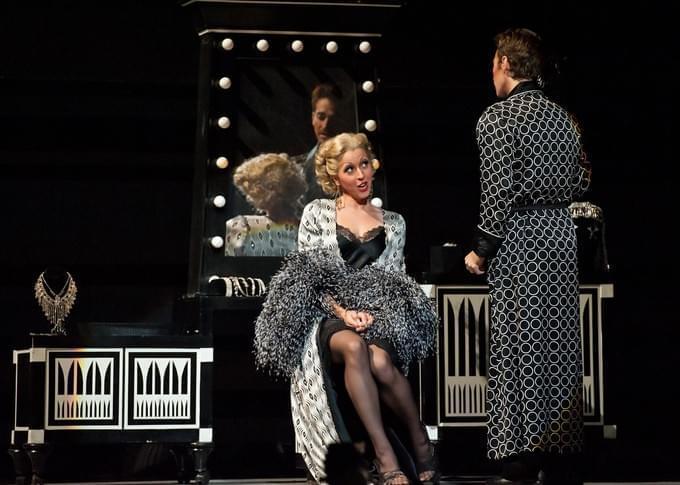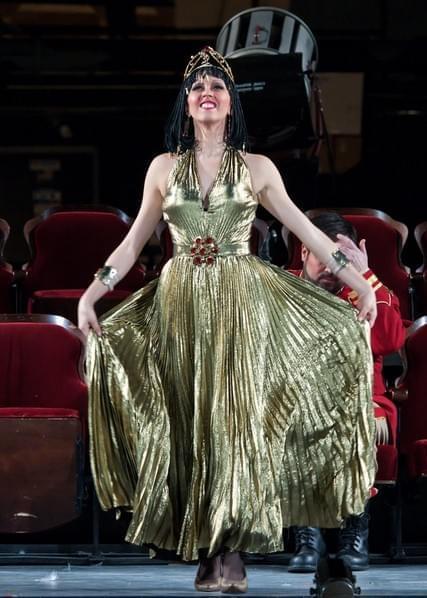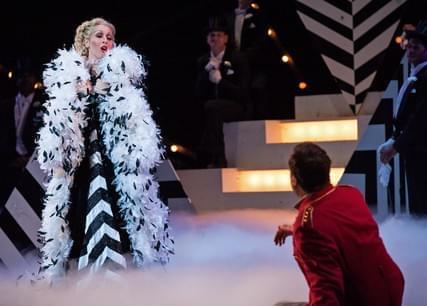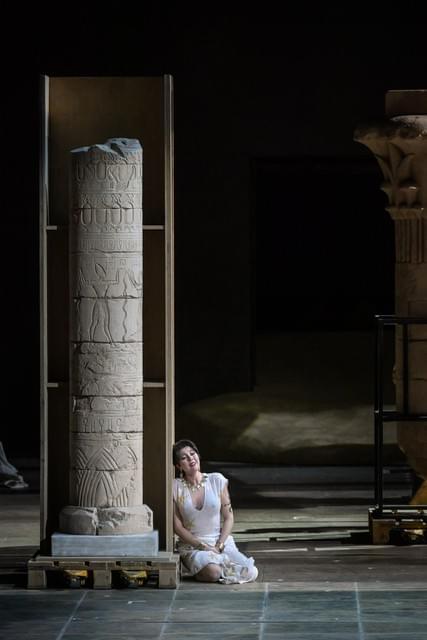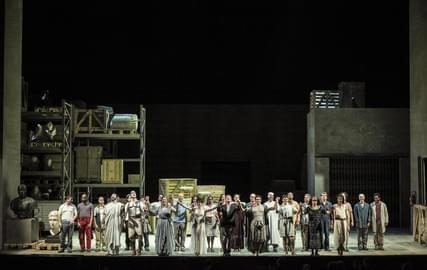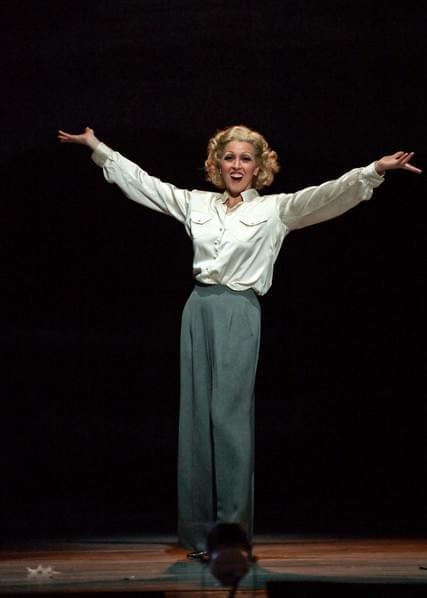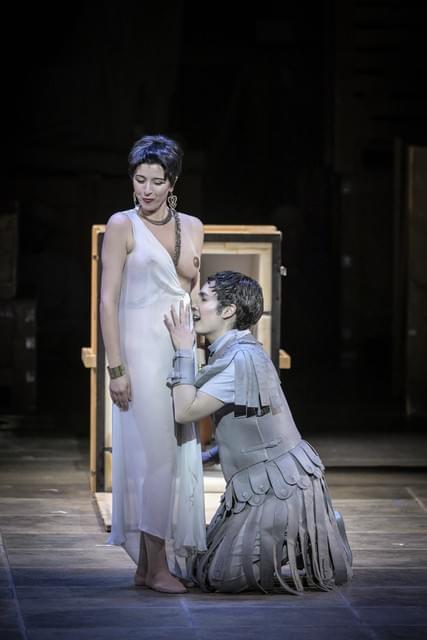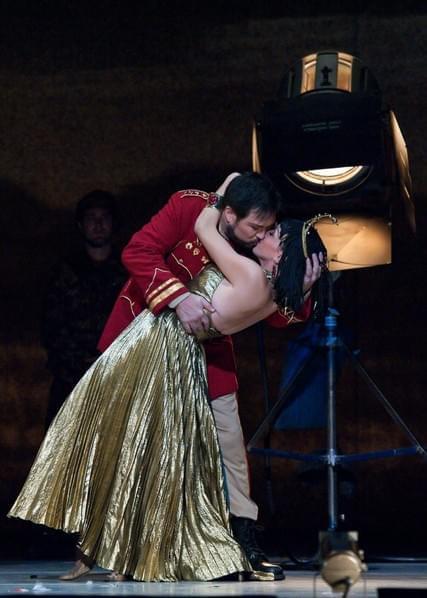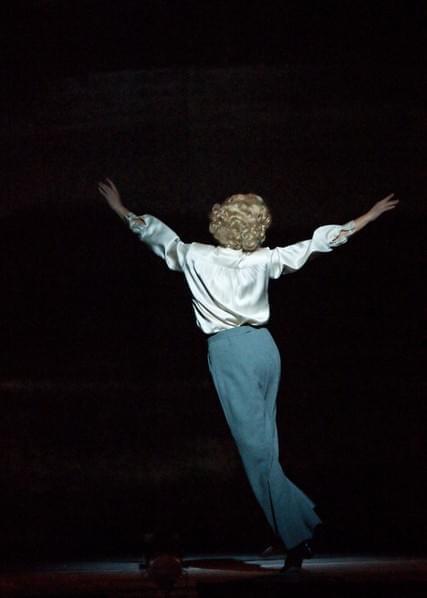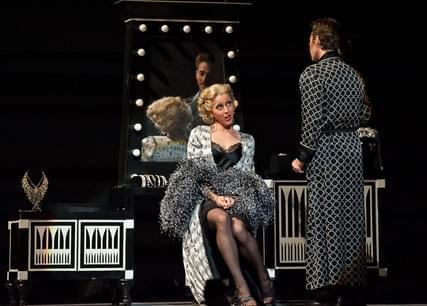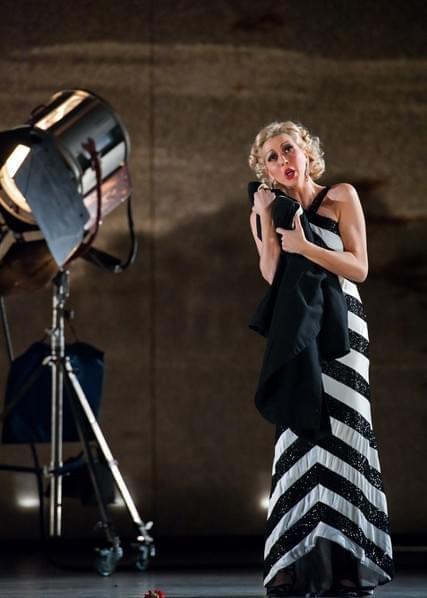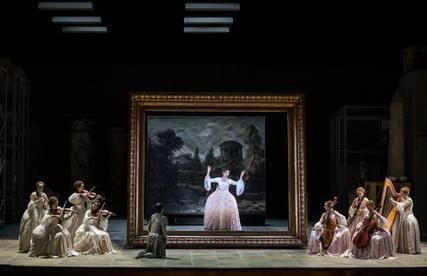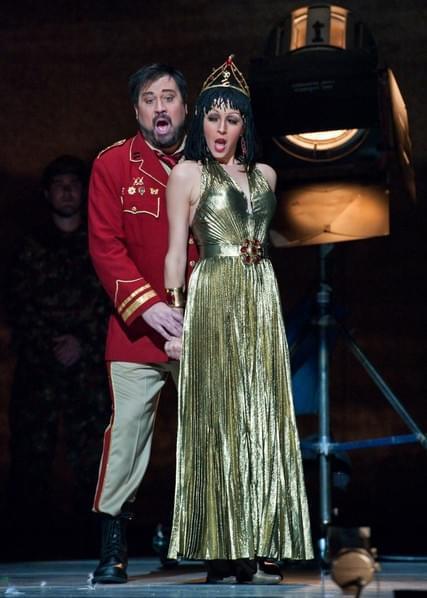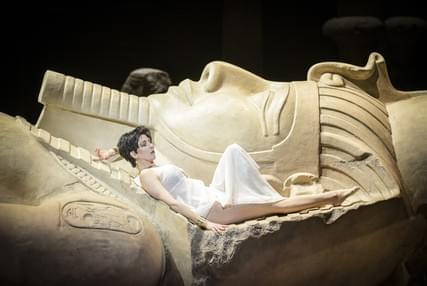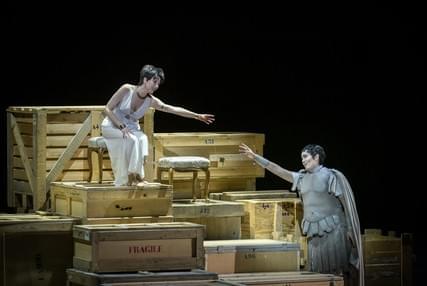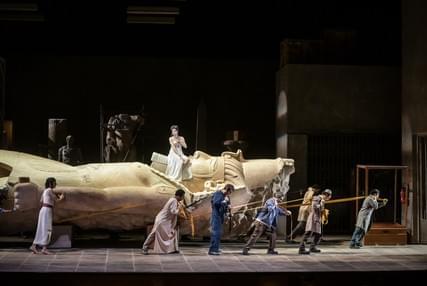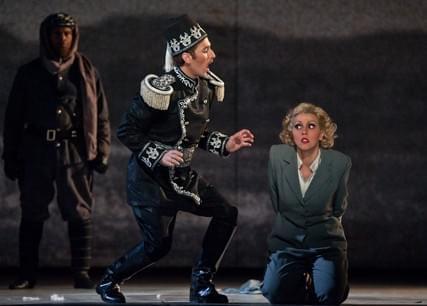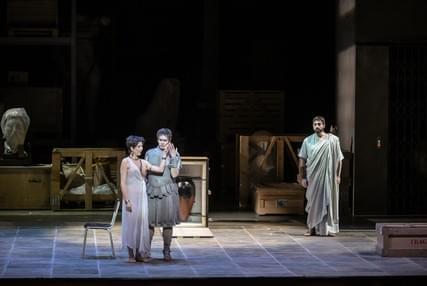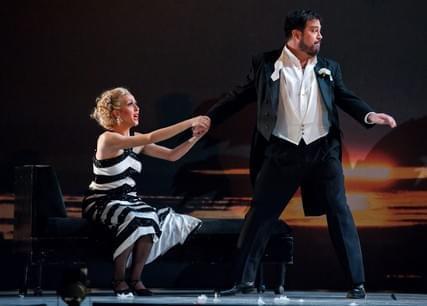Cleopatra in Giulio Cesare
Lisette Oropesa's portrayal of Cleopatra in Handel's "Giulio Cesare" has been widely acclaimed for its vocal brilliance and compelling stage presence, as noted across several reviews. A recurring theme in the reviews is her vocal agility and precision, particularly in the demanding coloratura passages and trills that characterize the role. Critics have consistently praised her ability to navigate the score's intricate challenges with ease, highlighting her performance of arias like "Se pietà di me non senti" as especially intense and moving. Her voice is described as flexible and seductive, contributing to a portrayal of Cleopatra that captivates both through sound and presence.
Beyond her vocal prowess, Oropesa’s interpretation of Cleopatra is noted for its dramatic engagement and charisma. Reviewers emphasize her ability to embody the character's complexity, portraying Cleopatra as both powerful and playful, with a nuanced balance of charm and theatrical seduction. Her physical presence on stage, often described as radiant and alluring, complements her vocal performance, creating a believable and captivating dynamic with her co-stars, particularly in the interactions with Giulio Cesare. Oropesa’s Cleopatra is depicted as a central figure, driving the action with her commanding yet nuanced performance, which many reviews suggest is a testament to her diverse operatic talents.
The critical consensus recognizes Oropesa’s portrayal as a standout interpretation, even in a repertoire not typically associated with her. Her ability to infuse Cleopatra with both vocal dexterity and dramatic depth underscores her versatility as an artist, further cementing her reputation as a leading soprano in the operatic world. This role, like her previous acclaimed performances, showcases her unique ability to blend technical skill with expressive artistry, leaving a lasting impression on audiences and critics alike.
Lisette has been reviewed 16 times in this role.
Role Information
- Composer: G. F. Handel
- Opera: Giulio Cesare
- Performances: 15
- Reviews: 16
- Venues: 2
- Organizations: 2
- Years: 2012 - 2024
Famous Interpreters
Francesca Cuzzoni was the original interpreter of the role of Cleopatra in George Frideric Handel's "Giulio Cesare in Egitto," which premiered on February 20, 1724, at the King's Theatre in the Haymarket, London. Cuzzoni was an Italian soprano born around 1696 in Parma, Italy. She was one of the leading sopranos of her time, known for her work in the operas of Handel and other composers. Besides Cleopatra, Cuzzoni is well-documented for her performances in other Handel operas, including the roles of Rodelinda in "Rodelinda" and Asteria in "Tamerlano." Her career was marked by a celebrated rivalry with fellow soprano Faustina Bordoni.
In the 20th century, several interpreters of Cleopatra in "Giulio Cesare" have been well-documented. Joan Sutherland, active primarily from the 1950s to the 1980s, is noted for her performance in the role, particularly in a 1963 recording conducted by Richard Bonynge. Sutherland was a prominent figure in the operatic world, known for her extensive repertoire and numerous recordings. Another significant interpreter is Beverly Sills, who was active from the 1940s to the 1980s. Sills performed Cleopatra in a notable 1966 production at the New York City Opera, which was part of a broader revival of Handel's operas during that period. Additionally, more recently, the French soprano Natalie Dessay, active from the late 1980s to the early 2010s, performed Cleopatra in various productions, including a 2011 recording with conductor Emmanuelle Haïm. These performers are recognized for their contributions to the revival and continued popularity of Handel's operas, though specific artistic interpretations are not the focus of this factual overview.
About the Composer
George Frideric Handel, a Baroque composer of German birth who later became a British citizen, is renowned for his masterful operas, oratorios, and instrumental compositions. Handel's operatic style is characterized by its dramatic intensity, rich orchestration, and virtuosic vocal lines. "Giulio Cesare in Egitto" (Julius Caesar in Egypt), premiered in 1724 at the King's Theatre in London, stands as a pinnacle of his operatic achievements. Handel composed this opera during a vibrant period of his career, aiming to captivate the London audience with a bold blend of political intrigue and romance set in the exotic backdrop of ancient Egypt. The work is significant for its sophisticated use of the da capo aria, allowing singers to showcase their technical prowess and emotional expressiveness. Handel's approach to vocal writing in "Giulio Cesare" is particularly noteworthy; he tailored each role to the strengths of the original cast, creating unforgettable characters through intricate arias and compelling recitatives. This opera remains a favorite among enthusiasts for its dramatic depth and the brilliant interplay between music and narrative.
Performance History
Lisette has performed Cleopatra 15 times.

